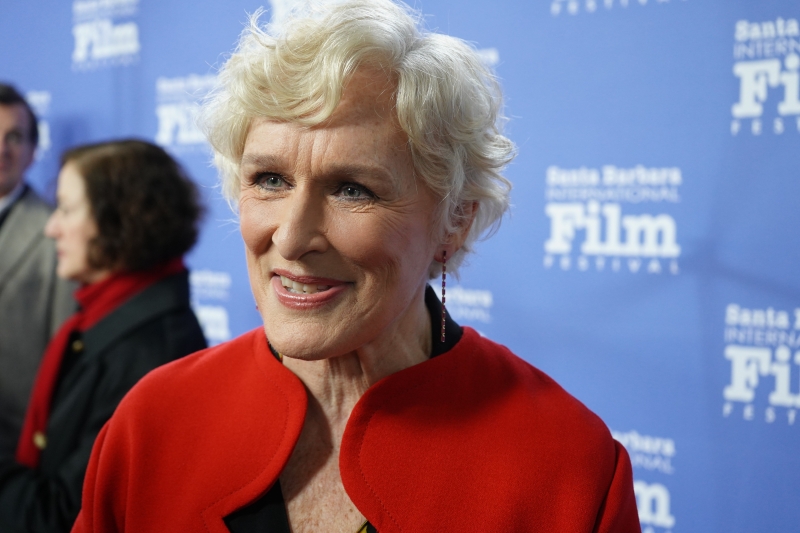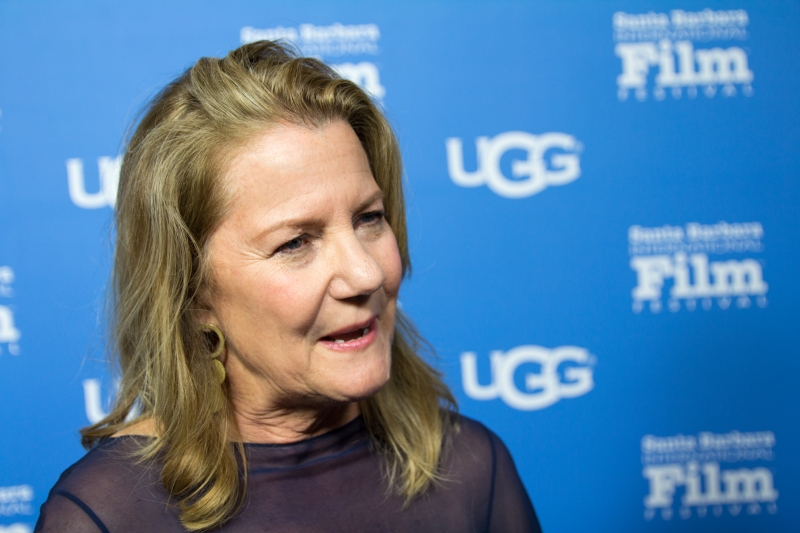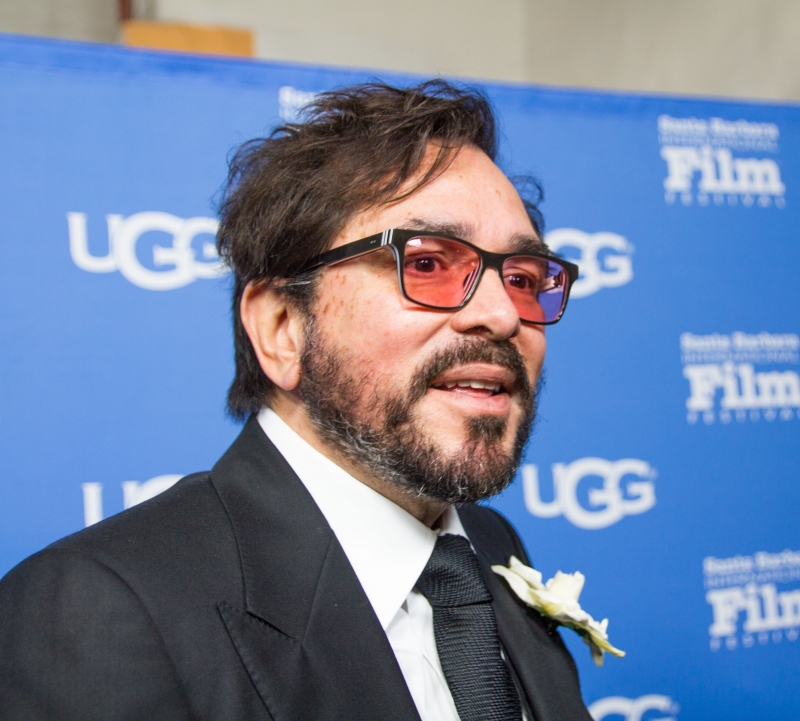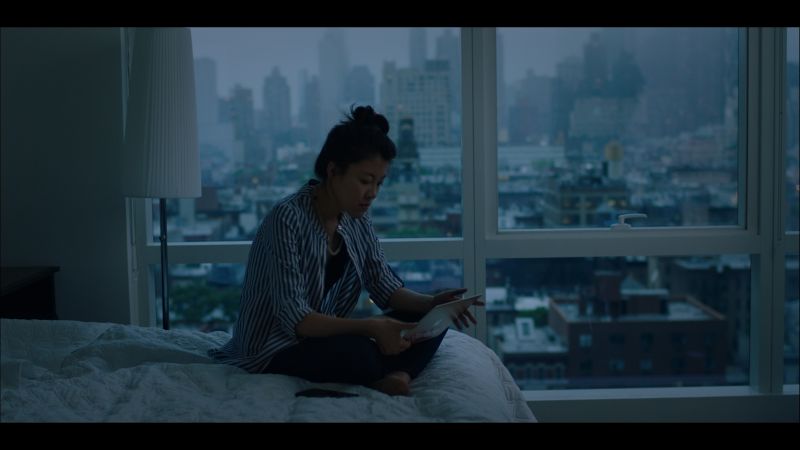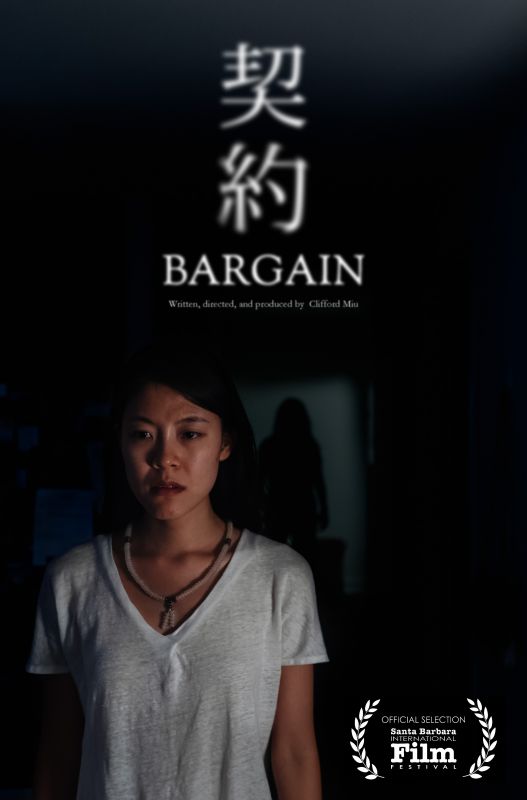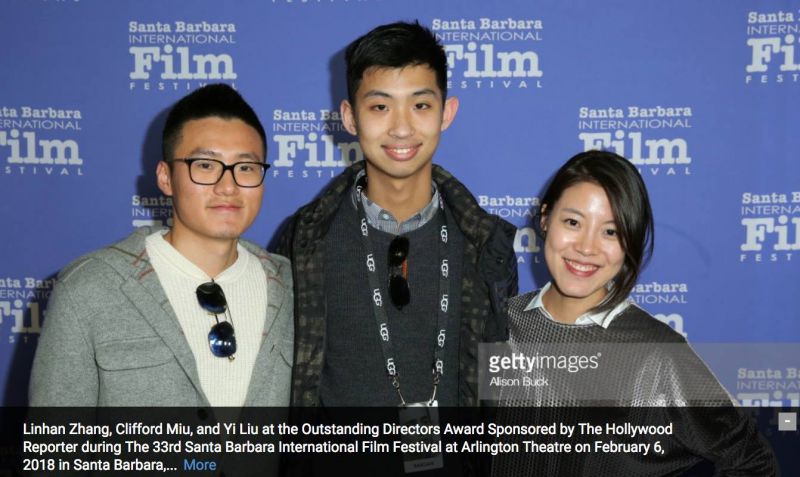|
|
||
|
Pro Tools
FILMFESTIVALS | 24/7 world wide coverageWelcome ! Enjoy the best of both worlds: Film & Festival News, exploring the best of the film festivals community. Launched in 1995, relentlessly connecting films to festivals, documenting and promoting festivals worldwide. Sorry for the disruptions we are working on the platform as of today. For collaboration, editorial contributions, or publicity, please send us an email here. User loginActive Members |
Santa Barbara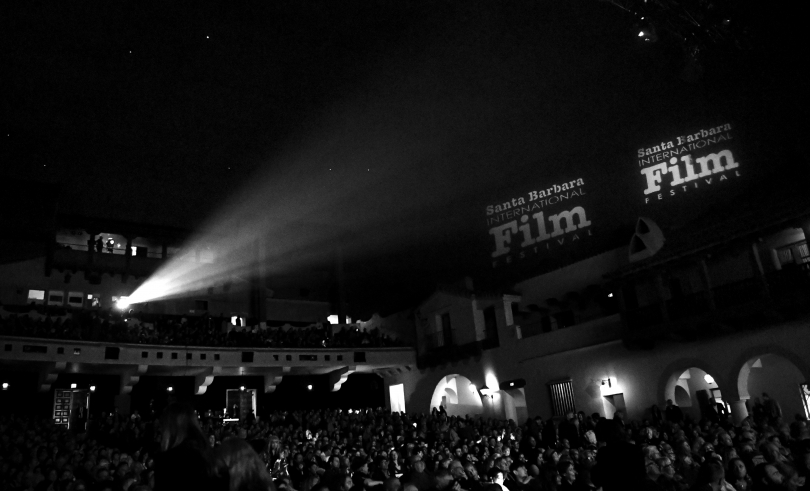
SBIFF is a 501(c)(3) non-profit arts and education organization dedicated to making a positive impact utilizing the power of film. SBIFF is a year-round organization that is best known for its main film festival that takes place each year in February. Over the past 30 years the Santa Barbara International Film Festival has become one of the leading film festivals in the United States – attracting 90,000 attendees and offering 11days of 200+ films, tributes and symposiums. We bring the best of independent and international cinema to Santa Barbara, and we continue to expand our year-round operation to include a wide range of educational programming, fulfilling our mission to engage, enrich and inspire our community through film.
In June 2016, SBIFF entered a new era with the acquisition of the historic and beloved Riviera Theatre. The theatre is SBIFF’s new home and is the catalyst for our program expansion. This marks the first time that Santa Barbara has had a 24/7 community center focused on the art of film and is an incredible opportunity to expand our mission of educational outreach. Particularly important to SBIFF is making available high quality learning opportunities for underserved and vulnerable populations. Our programs and reach are more robust than ever before.  'Isolated' (2013). Interview with producer Geoff Clark.
Produced by Geoff Clark and his ‘Something Kreative’ production company, and directed by Justin Le Pera, ‘Isolated’ (2013) is a film about five professional surfers who travel to a ‘No Media Zone’ in western Papua New Guinea in search of unexplored virgin waves and a unique adventure, but find themselves in the midst of a political hot zone and a journey that will change their mission and their lives. What starts as a story of extreme surfers in search of perfect waves evolves into a social issue about its genocide and the slow disastrous effects of globalization on this former pristine island. Further, a fight for survival ensues when one of the surfers, Travis Potter, catches fatal cerebral malaria; nevertheless, Travis and Justin travel back to New Guinea to begin a crusade for the impending social iniquities there. The film is Executive Produced Ryan Phillippe, who also narrates the film. It held its World Premier at the 28th Santa Barbara Film Festival and most recently screened this weekend at the Newport Beach Film Festival.
I interviewed Geoff Clark about his film. Here is what he had to say:
ME: Can you tell us a bit about the incredible journey of making this film?
GEOFF: To truly explore what surfers are willing to go through to find the perfect wave, we had to document a group of surfers going truly into the unknown. The potential for finding waves looked really promising but we really didn’t know what to expect. The area is one of the most remote places on the planet with very little known about it. Travel books like Lonely Planet and surf trips had yet to explore such an area and it was for this reason that the surfers were going to travel into the world’s last surf frontier. First of all, journalist visas were prohibited, so we didn’t even know if we could get on the island with our film gear. A couple bribes later, the director along with a three-man film crew landed with the group of surfers in Jayapura, Indonesia; this is the only major city in West Papua with the most bloodshed. From there, the film crew had to endure the same struggles as the surfers- limited food rations, hostile weather conditions, the possibility of encountering hostile tribes and an unwelcoming military in an area known for a bloodshed civil war between the local Papuans and Indonesian police.
ME: At what point while shooting the film did you decide to completely switch gears and let the island guide the story where it wanted to go, giving it a voice to its present and past political circumstances?
GEOFF: The director Justin Lepera, who is incredibly talented and tough as nails, wanted to capture the true essence of what the surfers were willing to go through, therefore he knew in order to do this he would have to document the journey as it unfolded. He was willing to do whatever it took to make that happen. For their own safety, they were trying to stay out of the public eye, especially the military, hiring local fishermen to take us in the middle of the night and dropping us off on an isolated stretch of coastline where we would navigate our way up the coast. GEOFF CONT’D: Staying with one of the tribes where we taught the kids how to surf, we found ourselves becoming a part of their community, living as they do and sharing stories of our world. It was there that we met an English-speaking woman who began to share the horrors of her people. She shared with us the village’s struggle with human rights abuses committed by the military. She told us a story about her brother who was murdered just before we arrived. As a threat to the people about speaking out against the military, they delivered her brother’s body to the tribe as a warning. Later just before leaving, the chief met with Travis secretly handing him a letter to deliver to the world crying for our help. It was here where Travis and Justin (the Director) realized that this film was more than about surfing, and a chance to truly connect with the people by delivering their message to the world. Without the rest of the group knowing, Justin and Travis began a mission to meet with powerful Papuan figures about the incident. GEOFF CONT’D: Fearing for the other film crew and surfers safety, they would take on this task alone. When meeting with the Papuan political figures, Justin and Travis went alone asking the rest of the crew to lock their doors and wait for special knock from them when they returned, instructing them to otherwise not answer the door for anybody. On their way to meet with political figures, they were led through a maze, with the fear of being tailed by the military. It was here where the director asked Travis, ‘Are we really willing to go down this road? Once we do, there’s no turning back and there’s no guarantee we are coming back from this.’ They decided they would take their chances and push on.
ME: Can you enlighten readers about the situation in West Papua, how it first began in 1969 and what the situation is now?
GEOFF: Since the act of free choice, Papuan’s villages have been destroyed, the people tortured and murdered for speaking out against Indonesia, and there is a strong process of assimilation going on where the Papuan culture is being destroyed in order to create a “one unified Indonesia.” What was interesting is that the Papuans were not fighting for their valuable gold and copper mine, which is the largest in the world located on their island. They were not even opposed to Indonesians inhabiting the area, but rather they were solely concerned about the human rights abuses committed by the military on their people. The only way they believe the will truly be free from persecution is to be a free nation.
ME: How much footage did you have by the end of filming and how hard was it to keep this footage from government authorities in West Papua?
GEOFF: Smuggling our gear in, they had to be extremely careful where they filmed and where there was military. We had to stash our gear in the jungle. We captured 400 hours of footage on tapes that we hid in our bags and in pelican cases underneath the foam where our gear was just in case we were interrogated. The director, in charge of the money and plans for the trip, kept all the maps and money for the entire production in a pouch around his neck. His stance was that in order to get the money from him, you would have to cut off his head. You can look through our gear but don’t touch my pouch. The military was thankfully respectful of this.
ME: When did you first decide to produce ‘Isolated’ and how did you go about getting this off the ground?
GEOFF: The director and I are both big fans of surf films and the culture, and we met while at Cal State Long Beach University in film school. We both loved surf films, but Justin pointed out to me that usually it’s surfers in exotic locations surfing perfect waves, but the films never touched up on how they found those waves and what they went through to find them. We were both fascinated by the feral nature of travel surfers had gone through to find unexplored waves and heard of epic stories of surfers overcoming extreme obstacles in finding these waves, but nothing has ever been created truly documenting this struggle. This inspired him to travel with a group of surfers to one of the most extremes areas of the world where they would truly have to survive and sacrifice in order to find the perfect wave. There was no sure guarantee they would find anything, but we ended up discovering so much more than we could have anticipated.
ME: ‘Isolated’ is not just a gripping and relentlessly suspenseful documentary, but also an active social movement towards bringing more awareness to the critical situation in New Guinea. Can you explain how are you are going about doing this?
GEOFF: Through our Isolated Ambassador for Peace campaign we are planning on achieving over 25k signatures on our White House petition, as well as showing public support by uploading your own video stating that you are an Ambassador for Peace. Through the power of social media we hope to bring awareness, and get others to join our movement for Peace. We have been lucky enough to gain support from celebrities like Leven Rambin, Brittany Snow, Britt Robertson, Cody Simpson, Curren Caples, Greg Hetson, Jeb Corliss, Jim Parrack, Cassie Scerbo, Chris Galya, Fivel & Booboo Stewart and many others. You can upload your own video directly from our website at www.isolated.tv
ME: What was the best and most rewarding experience while making this film, and the worst?
GEOFF: The most rewarding experience was bringing surfing to an area that never knew it existed and sharing the joy of riding waves with them by giving our boards away. The villages slowly turned into surf communities. With so much pain and struggling that the villagers were enduring, this gave them a release and joy they never had before. The worst was, without giving the story away, seeing such an amazing culture being destroyed and knowing that if they do not receive help soon, their culture will soon be lost and forgotten.
ME: Congrats on a stunning production! The direction, cinematography, story, subject, movement - everything. What were the major challenges to make this film come out so seemingly seamless?
GEOFF: The entire process of making the film in such a remote region was a struggle. The film crew truly had to endure the same as the surfers. If they got injured, there was no help. The director suffered heat exhaustion collapsing on the beach and being taken care of by the village. Jenny suffered an injury that they didn’t know if she would make it through the night. Travis suffered the deadliest form of malaria. But coming together as a group to give the world insight into a true surfers journey, they pushed on taking care of each other to bring the world an amazing story. All the pain was worth it to help those in dire need and to bring a true adventure that hopefully inspires travelers after to respect the cultures they meet leaving the comforts of the western world to truly experience another people’s way of life. When you see something going on that is wrong, rather than turning your back to it, do something about it.
ME: You recently had your world premier at the 28th SBIFF and have just screened at Newport Beach Film Festival. What has that been like? Do you plan to be screening at any upcoming festivals or events?
GEOFF: Yes- Honolulu FF, San Diego Surf Film Festival, and hopefully more as time goes on!
Interview by Vanessa McMahon. April 29, 2013.
Actor Ryan Phillippe said this about working on ‘Isolated’: “When we were given an opportunity to search for waves and experience a culture that very few people have explored, there was no question I wanted to be a part of this film. Then we were exposed to the human rights situation in West Papua during filming, and I knew this project had become much more important than your average surf film.”
“Isolated” partnered with non-profits Love is Louder and Surfrider Foundation, is from Something Kreative Films, directed by Justin LePera and Produced by Geoffrey James Clark, Justin LePera, Matt Meyerson and Jeremiah Kraus. More information on the film and the “Isolated Ambassador for Peace” campaign can be found at http://www.isolated.tv
ABOUT SOMETHING KREATIVE FILMS Something Kreative Films is a production company based in Los Angeles that is owned and operated by Producer Geoffrey J Clark. Something Kreative specializes in producing high-end content in the Feature Film, Reality television, Commercial, Music Video and Print advertising worlds. In addition to developing, financing and producing Isolated, SK developed and produced The Arena: North Shore for Fuel Network, provided sports choreography for 50 Cent’s All Things Fall Apart, and created content for brands like Apple, Neiman Marcus, ASICS, Vanity Fair, Vogue to name a few.
View the film’s website here: http://www.isolated.tv/
29.04.2013 | Santa Barbara's blog Cat. : 'Isolated' (2013). Interview with producer Geoff Clark. Interviews
|
LinksThe Bulletin Board > The Bulletin Board Blog Following News Interview with EFM (Berlin) Director
Interview with IFTA Chairman (AFM)
Interview with Cannes Marche du Film Director
Filmfestivals.com dailies live coverage from > Live from India
Useful links for the indies: > Big files transfer
+ SUBSCRIBE to the weekly Newsletter DealsUser imagesAbout Santa Barbara The Santa Barbara International Film Festival has star wattage and a wealth of premieres in a Mediterrean-style city by the sea.
Blogging here with dailies: View my profile Send me a message The EditorUser contributions |




